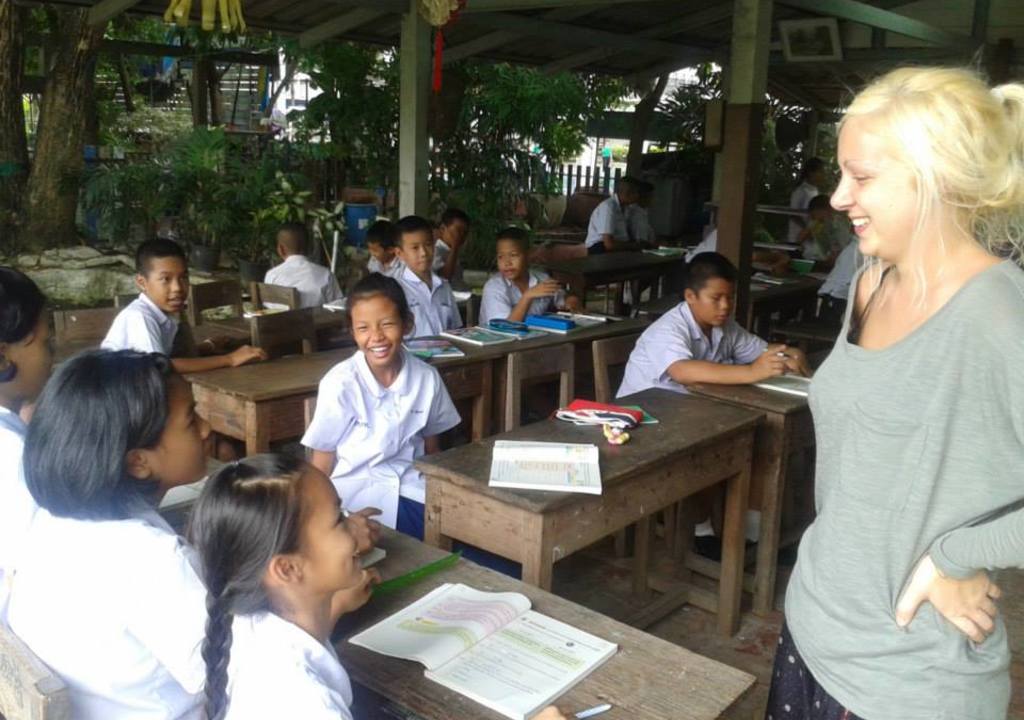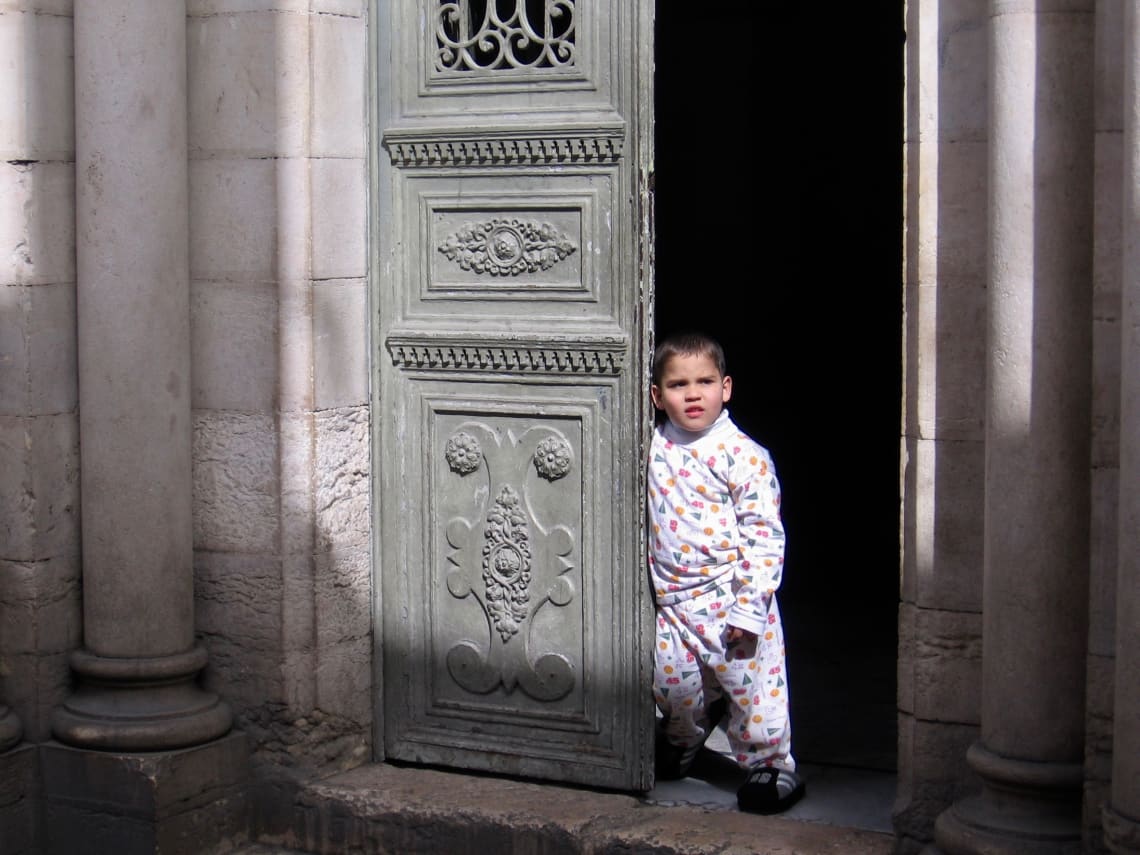
- ¿Quieres un boleto de hasta $500 grátis?
- Envía tu respuesta antes del 30 de abril y ten la oportunidad de ser premiado.
Have you ever considered volunteering with children while traveling? I’ve done it, and want to suggest that you do also: it will change your life for the better, and perhaps theirs, too!
4min

When I studied abroad in Jerusalem, volunteering was built into our program. While there, I cleaned, cooked, and cleaned some more… but the work that grew me the most was the childcare.
I’d like to tell you a story to give you a better picture of my experience, and to explain to you that even though working with children is challenging, it is also extremely rewarding— for everyone involved.
Picture the scene: Several fellow students and I were sweating as we tried to corral at least twelve kids in the tiny, stone-walled church building for a lesson and games. The boys were jumping from the stairs onto the male students, trying to wrestle them to the floor, while the smaller children ran around the room and bounced off the walls— literally. The oldest girls chattered in Arabic and grinned at our obvious confusion. We had no idea what we were supposed to be doing, and they knew it.
Several children had just returned after running away— briefly— down the narrow street. I made nervous eye contact with my friend. Her eyes were even wider than mine, and reflected the same thinly-veiled panic. There wasn’t much in my seven years of middle-class suburban babysitting experience that could have prepared me for this.
After three hours of chaos, the Bible study upstairs ended, and parents left with their children racing home ahead of them or stopping to play in the street behind them. My friends and I trudged back to our old hotel, exhausted. I felt like a failure. Yes, we’d “kept the kids alive”… but what had we really accomplished? In the confusion, I hadn’t even been able to learn all of their names.
I am so thankful that the discouragement didn’t cause me to quit or mentally check out of that situation. Instead, one of the students came up with a structure for our Thursday evenings that allowed us to have the appropriate amount of control… and helped us become more intentional with how we related to the kids. Here are some of the things I learned from that experience, and why you should consider doing something similar:
Wherever you go, stereotypes exist. Depending on where you’re from and what country you’re visiting, the stereotypes may or may not be in your favor. Realize that you represent your country, your religion, your passions and life philosophy, and that you have the power to expose others to it for the good of the world you live in.
Do we want to live in a world of understanding and peace? If so, there is nothing that shatters stereotypes better than forming relationships!
While we can do this no matter who we meet on the road, children are the citizens of tomorrow— and “tomorrow” isn’t that far off. Because I met and befriended a diverse group of people when I was young, I am more open and understanding of others who are different from me. If you choose to spend time interacting with kids in another country, you can be a part of forming that mindset in others!

After that first night at the Arab church, I expected that I was going to have to win the kids over. I certainly needed to win their respect! Weeks later, however, I found out that they already thought my friends and I were cool! We had a special status in their eyes simply by being Americans and Koreans.
One night, one of the girls who spoke some English was telling me a story— then stopped in the middle to ask me if I thought her English was good. She was clearly proud of her skills, but was hoping for my approval! I realized that I had more influence in her life than I’d thought— and assured her that I was impressed with how well she spoke English!
Because we took an interest in them— in their hobbies, their fears and delights, their lives— they felt cared for and “cool,” themselves.
People they thought were interesting took an interest in them, and they felt valued. They could see that we loved them!
This had some awesome implications— recently, one of the boys, now a teenager, contacted one of my friends who had spent special time with him all those years ago… to tell him that he was thankful for the time he’d spent playing with him and building him up as a person. It had long-lasting effects on his faith and his life! This is the power of relationships.
While we did see a change in the experience as the weeks wore on, I’d have to say that the change was more in us and our perspective than in the children!
I learned that a different culture also has different parenting styles, and it wasn’t uncommon for children (that I would consider too young to be let out of my sight!) to pick up other, younger children for a walk to school! I learned the Arabic words for “yes” and “no,” and when to use them!
To sum up the details: I learned that there is not always just one “right way” of doing things. The kids taught me to embrace a more relaxed life and to not get stressed over small problems.
If you love children and travel, I encourage you to learn another culture by interacting with its children. You will get frustrated. But your time and friendship will be treasured, and it is likely that they will teach you more lessons than you will ever teach them!
Escriba aquí sus preguntas y saludos al autor
Mir Nure
Sep 17, 2021
Thanks a lot u because ur thinking is good.Go ahead.God bless u.
S
Sep 02, 2023
Can we volunteer along with our kid